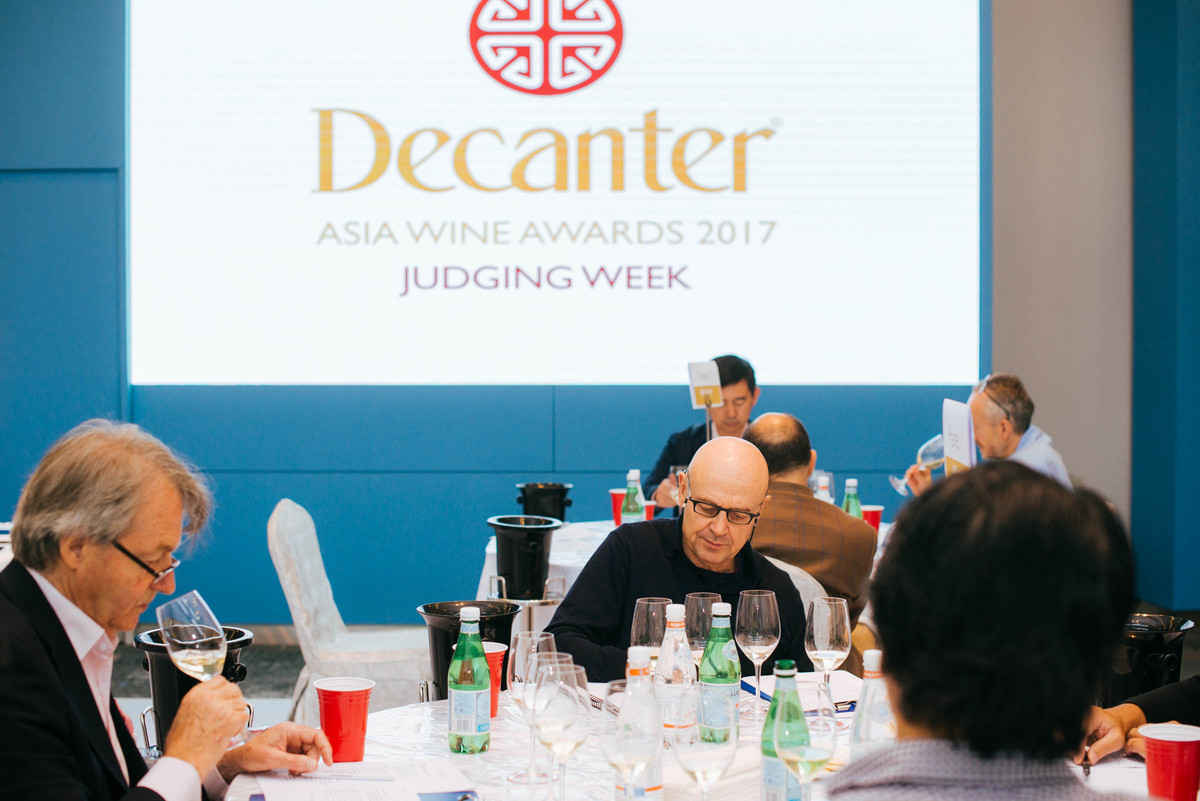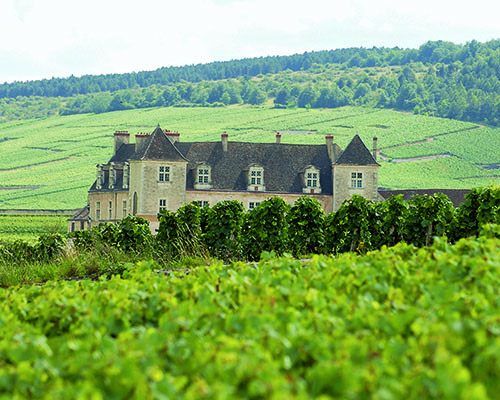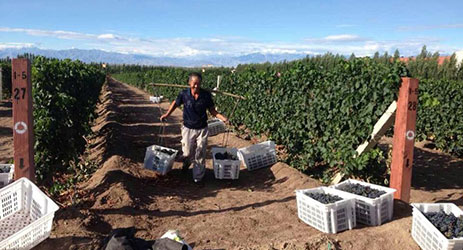The founder of Grace Vineyard, one of China’s first boutique wineries, reminisces about the stories behind the estate which celebrates its 20th anniversary.
(Edited from the original Chinese version by Sylvia Wu)

The beginning of ‘Yi Yuan Winery’
After graduating from Taiyuan Institute of Technology, I started off as a businessman trading processed coal from Shanxi province with the US and Japan in 1980.
The thirst for coal on the international market, combined with a national shortage of foreign currency, meant that the entire Shanxi was producing ‘coke’ [a type of fuel made with few impurities and a high carbon content] using a highly polluting indigenous method at the time.
One day a government official from Shanxi’s department of production materials, who also happened to be a respected senior alumni of my university said to me: ‘Look, how much Shanxi has been polluted? Why can’t you start any business that wouldn’t harm the environment so much?’
The conversation made me think about the ways in which I could help the province I was trained in.
Due to the nature of my job I frequently travelled to Europe, where my French friends would always take me to chateaux for food and wine. The beauty of wine estates impressed me and I began to consider the possibility of building a wine estate in Shanxi.
After years of research and looking for the perfect site, we started building ‘Yi Yuan Winery’ [The Chinese name of Grace Vineyard] in 1997.

Few expected this investment to succeed. And probably they were right.
In the 1990s, the vast majority of wines consumed by the Chinese came from a few big brands, with an ex-winery price ranging from 10 RMB to 20 RMB (2 GBP). What I wanted to make, however, was boutique fine wines.
At the time, the local wine consumption in Shanxi was minimal. To make things worse, Shanxi was widely known as a severely polluted city, making it more difficult for us to sell wines produced here to other parts of the country.
But I wasn’t discouraged and insisted on my original idea—I was impressed by the concept of European fine wine chateaux, and I wanted to introduce that to Shanxi. Even if people wouldn’t understand then, I believed that, one day Chinese people would learn to appreciate the beauty of quality wines.
For that reason, I refused to give my winery an English name and turned down bottling jobs for brands from other provinces for quick cash.
Even though at the time Shanxi was criticized nationally for producing fake alcoholic beverages, which in fact killed a few people back then, I still insisted on promoting Shanxi as the origin of my wine.
My daughter, Judy, who is now the president of the winery, told me I was an ideologist, and indeed I am.
At the beginning, the winery didn’t make any money at all. Without my daughter my wine dream would have long gone in vain.
The silent bud break
‘The innocent has no fear,’ as a Chinese saying has it.
At the very beginning of Grace Vineyard (or ‘Yi Yuan’ at the time), nobody, including myself, really understood how to make fine wine. But we were determined to make the best quality wines in China, a dream that drove us to study hard.
When it came to promoting the wines, I used to carry the samples around myself for potential buyers, experts and critics to try them.
Initially, my audience would frown at the fact that these wines were from Shanxi and produced by an unknown brand. I felt hurt at the beginning, but slowly I became used to the criticism and contempt.
Gradually and quietly, wines of Grace Vineyard became known in the Chinese trade, and wine professionals and experts, many of whom became my friends, started to give Grace Vineyard their approval.

What further boosted my confidence was the fact that hotel groups, including the Peninsula and Shangri-La, as well as Cathay Pacific Airways, which was famous for their strict selection process, listed Grace Vineyard wines.
The long journey
In order to learn my ways around the wine trade, I have tasted many fine wines from all over the world. Therefore, as much as I’m proud of my wines, I always knew that they were still far from the top of the league in the world. Though the Chinese media always say, mostly for propaganda, that Chinese wine regions are ‘at the same latitude as Bordeaux.’
In fact, Chinese wine regions don’t have the same level of favourable climate as Bordeaux, namely hot and dry summers plus moderate and humid winters.
Like in many regions in China, vines in Shanxi have to be buried to survive the severe winter every year. The labour-intensive process means that wines from Shanxi don’t come cheap.
These drawbacks made me once doubt whether China will ever be able to produce good wines.
But Grace had no grounds for retreat—my only hope was for my daughter Judy to fight her way out. And she made it—I just tried the samples from the fresh vintage, and I had tears in my eyes at the progress we have made.

But there is still a long way to go. As my daughter once said, Grace Vineyard can become truly successful only when people are able to recognise the terroir of Shanxi from its wine.
It’s already difficult to produce quality wines in Shanxi, let alone making wines with recognisable and likeable local identity.
It was then when I finally understood what a European chateau owner meant at a dinner decades ago when he said: ‘it’s not difficult at all to make fine wine—only after the first 200 years.’
Heading to the future
In the last decade, many of my friends have made a fortune from coal mining and real estate, while we invested fully in wine.
It’d be a lie to say I have never felt envious of the fortune they have built. I once regretted having lead my daughter into the wine business—she might have achieved so much more with far less hardship had she pursued another career.
However, looking back at what she has achieved with Grace Vineyard at its 20th anniversary, I realised that this was exactly what I had dreamt of two decades ago.

It is already the pride of the family, and it’s evident to my daughter’s diligence and wisdom.
Outside the wine world, I can’t think of another business that can create both an entrepreneurship and a splendid family legacy. And how can that be valued with only money?
Chen Dening, my 12-year-old granddaughter, has been saying for a few years now that she would like to succeed her mother’s role at Grace Vineyard.
I can already foresee Grace Vineyard in its 100th birthday—it shall thrive as a respected boutique Chinese winery built on dedication, commitment and wisdom passed on from generation to generation.
(Editing by Andrzej Binkiewicz)
Translated by Sylvia Wu / 吴嘉溦
All rights reserved by Future plc. No part of this publication may be reproduced, distributed or transmitted in any form or by any means without the prior written permission of Decanter.
Only Official Media Partners (see About us) of DecanterChina.com may republish part of the content from the site without prior permission under strict Terms & Conditions. Contact china@decanter.com to learn about how to become an Official Media Partner of DecanterChina.com.











Comments
Submit